The Issue isn’t Local Church Autonomy; the Issue is Women Pastors
As we rapidly approach the Southern Baptist Convention’s 2024 annual meeting in Indianapolis next month, the debate over the top issue on the docket this year, the Law Amendment, is heating up. Even though SBC messengers are overwhelmingly supportive of the Law Amendment, a flurry of late arguments against its ratification from a certain segment of SBC elites seems to be hitting the press on almost a daily basis. The latest salvo comes from one of the former presidents of Southwestern Baptist Theological Seminary, Dr. Ken Hemphill.
Hemphill’s argument is essentially ecclesiological. His concern is not the issue of women pastors per se but the “issue behind the issue.” Hemphill submits that the real “issue” with the Law Amendment is that, by adopting it, Baptists would be moving away from their historic congregational polity.
According to Hemphill, passing the Law Amendment “cedes the point” that the SBC can dictate congregational practices to cooperative churches. This undermines the foundational principle of Baptist congregational polity: the local church’s autonomy.
The effects of this are—apparently—apocalyptic: “[W]e are opening a Pandora’s box of hierarchical control that will erode the autonomy of the local church, challenging the rule of Christ over the congregation.”
Hemphill’s position evinces an elementary misunderstanding of Baptist ecclesiology. If the Law Amendment undermines local church autonomy, then so, too, must cooperation with the Southern Baptist Convention itself do the same.
There are a variety of perfectly reasonable doctrinal standards for cooperation. We are Baptists, after all, and not Presbyterians, Lutherns, or Catholics. And we recognize, by virtue of historic Baptist fellowships, that these cooperative doctrinal standards do not undermine local church autonomy.
A smattering of examples suffice to demonstrate the point. We do not permit churches to cooperate with the SBC that are atheistic, subscribe to distinctively Catholic doctrines such as transubstantiation or papal infallibility, affirm paedo-baptism, or reject Nicene orthodoxy. We also require funding for the Cooperative Program, and constitutionally, as of 2019, we require cooperating churches to hold themselves to certain standards related to their handling of racism or sexual abuse allegations.
Each of these standards imposes “constraints” on the local church—in as much as they freely choose to cooperate with the SBC—on what they affirm, what they teach, how they practice, and how their finances are allocated. These constraints can only be construed as undermining local church autonomy if Hemphill understands local church autonomy to be absolute independence.
Southern Baptists have never affirmed this. We understand that our standards for cooperation are tethered to what we believe, as Baptists, and to the clear teachings of Scripture. The point that Hemphill is concerned that we will concede has already been conceded.
Adopting the Law Amendment is, in fact, nothing more than normative Baptist ecclesiology coupled with our historic cooperative practices.
Interestingly, another SWBTS product and opponent of the Law Amendment, our current SBC President, Bart Barber, once made the same argument I am making here. Barber, contra Hemphill, argued in 2012 that there was no tension between local church autonomy and cooperative boundaries when he defended disfellowshipping Christ Tabernacle Missionary Baptist Church in Jacksonville, Florida, for calling a disqualified man to be a pastor in their church.
Barber writes:
“Local churches in Southern Baptist life are autonomous. We do, however, have the authority to determine which churches are those with whom we walk in cooperative fellowship. Unless they repent, Christ Tabernacle must be removed from that fellowship.
Historically, gross error in the selection of pastors has been among the most widely recognized grounds for disfellowshipping churches from Baptist associations.
It is a late, flawed idea in Baptist life that a local congregation’s decision to call a pastor is no business of the other congregations in fellowship with that church.”
Amen. 2012 Bart Barber got this right. 2024 Barber and Hemphill are getting it wrong.
Ultimately, there is no eliding the substantive issue by appealing to ecclesiological concerns. The issue is not, in fact, the “issue behind the issue,” but the actual issue itself: Should churches in friendly cooperation with the SBC be required to uphold our confession of faith by appointing only men, as qualified by Scripture, to the pastoral office?
Those of us who support the Law Amendment answer with an unreserved “Yes!” Our answer is based on the clear teachings of Scripture (1 Timothy 2:12; 1 Timothy 3:1-7; Titus 1:6-9) and the Baptist Faith & Message 2000 (Article VI. The Church). The Law Amendment is certainly Baptistic. Even more important, it is biblical.
Our cultural moment is adrift in a confused and unbiblical anthropology that men and women are interchangeable, evidenced by the affirmation of transgenderism, gay marriage, and, yes, women pastors. The once predominant mainline denominations have followed the well-trod progressive course from ordaining women in the pulpit into cultural irrelevancy, decline, and, most tragically, biblical infidelity.
Let this not be the story of the Southern Baptist Convention. We’re the largest and most effective denomination remaining in America that (largely) stands faithfully on God’s Word against the cultural confusions of our day. The direction of the SBC sets the direction of American evangelicalism. The Law Amendment assumes the center and faithfully proclaims the biblical anthropology that our culture desperately needs to hear.
We should never fear obedience. No “apocalypse” is coming for siding with God’s Word against the world. There’s no threat to our Baptist ecclesiology or historical practices of cooperation that come with humbly submitting to God’s Word about the qualifications of pastors in His church.
The real “Pandora’s box” facing the SBC right now is the danger of doctrinal compromise and an increasingly liberal drift. Failure to ratify the Law Amendment will only imperil us further. So, come to Indianapolis for our annual meeting, and let’s pass the Law Amendment overwhelmingly once again.
-

Reid Bishop is a Southern Baptist lay member at Christ Covenant Church in Atlanta, GA. He is a mathematician and technologist, working as a Senior Director of Data Science in the software industry. He has a dual B.S. in Applied Mathematics & Management Science from Massachusetts Institute of Technology and a Ph.D. in Operations Research from Georgia Institute of Technology. He is married and has one child.

